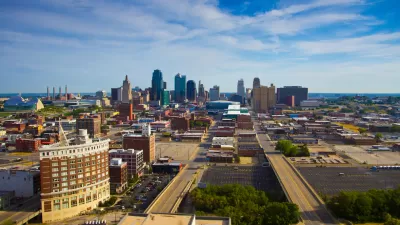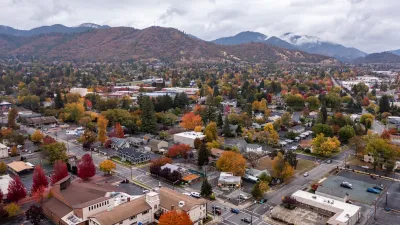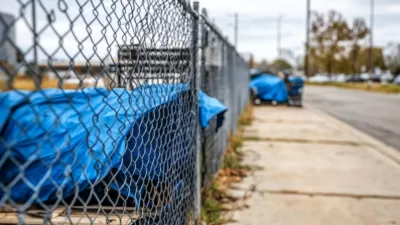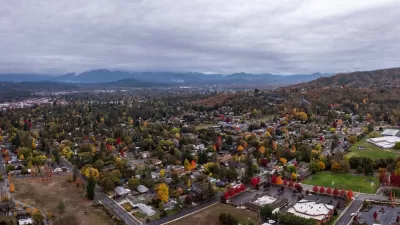The state legislature passed a bill that bans sleeping on state land and threatens to pull state funding from cities with high rates of homelessness.

A Missouri law passed late last month bans outdoor sleeping on state land, which critics say effectively criminalizes homelessness. According to an article by Kacen Bayless and Anna Spoerre in The Kansas City Star, “Public protests have called for Kansas City to find better, long-term solutions to housing the city’s approximate 2,000 people without homes.” The authors add that “The law, which goes into effect Jan. 1, also requires local governments to financially support services like mental health treatments and short-term housing.”
The article continues, “While it passed both chambers of the Missouri legislature in late May, some lawmakers voiced concern about whether arresting those who are unhoused is inhumane.” Empower Missouri’s Sarah Owsley said similar bans have failed to reduce the number of unhoused people sleeping on public streets. “Street sleeping bans also increase the likelihood that unsheltered individuals move deeper into the woods or to more secluded areas that can present more dangerous situations for them, she said.”
The bill is based on similar legislation passed in Austin, Texas, where the city issued 130 citations within the first six months. And while Missouri legislators say the law can help guide people to shelters, the article points out that “Kansas City’s shelters are often full, and many unhoused residents have complained of being turned away.”
The bill also “would penalize local governments with a per capita homelessness rate higher than the state average by prohibiting them from receiving state funding until they’ve lowered it,” threatening already limited funding. Marqueia Watson, executive director of Greater Kansas City Coalition to End Homelessness, called the bill counterproductive to current efforts to reduce homelessness, saying that “by requiring social workers to do anything remotely related to policing homeless people sleeping on state land will break trust and ultimately make it more difficult to get people help.”
FULL STORY: New Missouri law bans outside sleeping. KC leaders say it criminalizes homelessness

Planetizen Federal Action Tracker
A weekly monitor of how Trump’s orders and actions are impacting planners and planning in America.

Congressman Proposes Bill to Rename DC Metro “Trump Train”
The Make Autorail Great Again Act would withhold federal funding to the system until the Washington Metropolitan Area Transit Authority (WMATA), rebrands as the Washington Metropolitan Authority for Greater Access (WMAGA).

The Simple Legislative Tool Transforming Vacant Downtowns
In California, Michigan and Georgia, an easy win is bringing dollars — and delight — back to city centers.

The States Losing Rural Delivery Rooms at an Alarming Pace
In some states, as few as 9% of rural hospitals still deliver babies. As a result, rising pre-term births, no adequate pre-term care and "harrowing" close calls are a growing reality.

The Small South Asian Republic Going all in on EVs
Thanks to one simple policy change less than five years ago, 65% of new cars in this Himalayan country are now electric.

DC Backpedals on Bike Lane Protection, Swaps Barriers for Paint
Citing aesthetic concerns, the city is removing the concrete barriers and flexposts that once separated Arizona Avenue cyclists from motor vehicles.
Urban Design for Planners 1: Software Tools
This six-course series explores essential urban design concepts using open source software and equips planners with the tools they need to participate fully in the urban design process.
Planning for Universal Design
Learn the tools for implementing Universal Design in planning regulations.
Smith Gee Studio
City of Charlotte
City of Camden Redevelopment Agency
City of Astoria
Transportation Research & Education Center (TREC) at Portland State University
US High Speed Rail Association
City of Camden Redevelopment Agency
Municipality of Princeton (NJ)





























